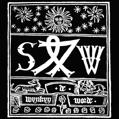enne📚 reviewed A Desolation Called Peace by Arkady Martine (Teixcalaan, #2)
A Desolation Called Peace
4 stars
When a novel feels like it strongly stands alone and ends with such closure, it's hard to imagine what a sequel would be like. This sequel to A Memory Called Empire is different, stranger. I like it a lot, but it is also not what I expected.
It grows a few more points of view, over the original's singular voice from Mahit. It's also a first contact military sf story in space as opposed to the first book's city-centered succession politics and poetry. It's a story about not being able to truly go home again after travelling, about disobeying orders that don't sit well in your heart, about the psychology of different kinds of consciousnesses (in some ways similar to the Ancillary series), and about what peace means to individuals and empires.
One thing I enjoy is that the book gets into the friction between Mahit and Three …
When a novel feels like it strongly stands alone and ends with such closure, it's hard to imagine what a sequel would be like. This sequel to A Memory Called Empire is different, stranger. I like it a lot, but it is also not what I expected.
It grows a few more points of view, over the original's singular voice from Mahit. It's also a first contact military sf story in space as opposed to the first book's city-centered succession politics and poetry. It's a story about not being able to truly go home again after travelling, about disobeying orders that don't sit well in your heart, about the psychology of different kinds of consciousnesses (in some ways similar to the Ancillary series), and about what peace means to individuals and empires.
One thing I enjoy is that the book gets into the friction between Mahit and Three Seagrass. The first book is a whirlwind week of adventure, and ends with a smooch between them during a momentary pause before the climax of the book. There's no time for conversation or for feelings or for anything other than an emotional moment of connection. This book gives them more space and time, where feelings that were smothered in the first book about the complications of perception rear their head and have to be processed. This also makes it feel much different than the first book, where everybody, and especially Three Seagrass, feel more "on side", even when relationships and goals are complicated.
I don't think either of these books are creating larger worldbuilding that would extend out to a longer series. However, I do think they each are remarkably thematically tight books and both worth reading.









